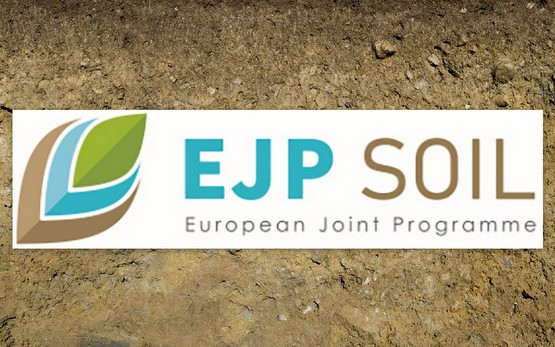EJP Soil: Towards climate-smart sustainable agricultural soil management systems
We do not always remember the importance of soil, but actually, our lives depend on it. Soil is the habitat and the supplier of nutrients and water for plants and their roots. Fertile and productive soils are literally the foundation of our existence, as they are the prerequisite for a stable supply of food, fibre, animal feed, timber and other biomasses. Through sustainable soil management, it is possible to preserve and even enhance the provision of ecosystem services by soil and biodiversity. Soil management can also be climate smart, contributing to mitigate climate change by carbon storage and to adapt agroecosystems to changing climate. In response to this growing realization, more and more initiatives are calling for increased knowledge on sustainable soil management and the protection of soils functions.
Agroscope is helping to answer this call by joining a team of 26 partner organizations from 24 countries across Europe to participate in a five-year European Joint Program called EJP Soil. The objectives of EJP Soil are to develop knowledge, tools and an integrated research community to foster climate-smart sustainable agricultural soil management, i.e. agricultural soil management that allows sustainable food production, sustains soil biodiversity, as well as other soil functions that preserves the ecosystem services that the soils deliver. Together with the European Commission, the partners have a joint budget of 80M€ with which to create an enabling environment that will enhance the contribution of agricultural soils to key societal challenges, including climate change adaptation and mitigation, sustainable agricultural production, ecosystem services provision and restoration and prevention of land and soil degradation.
The implementation of climate smart sustainable soil management differs from region to region, between agricultural practices and obviously between different soil types. As one of its first activities, EJP Soil will involve national stakeholders in identifying knowledge gaps and differences in existing regional and national activities. Stocktaking will establish the baseline of available knowledge and tools in partner countries and help to identify research priorities. This will enable the construction of a roadmap that will function as a strategic research agenda that allows for strategic decision making in science, policy and implementation issues not only in Switzerland, but across Europe as well.
EJP Soil will seek to raise general public awareness and improve understanding of agricultural soil management. Farmers, landowners, land managers and industry will get access to context-specific guidelines for sustainable soil management practices, technology and tools for carbon level accounting. As part of the roadmap development, stocktaking will look at current models for accounting for soil quality and soil carbon in partner countries. Among other outcomes, this will lead to possibilities for the implementation of agricultural soil management options accounting for the potential effect on soil organic carbon stocks and greenhouse gas emissions. At the policy level, the aim is to identify data gaps and priority needs for new knowledge and enhance evidence-based recommendations for policy-making at both European and regional levels.






